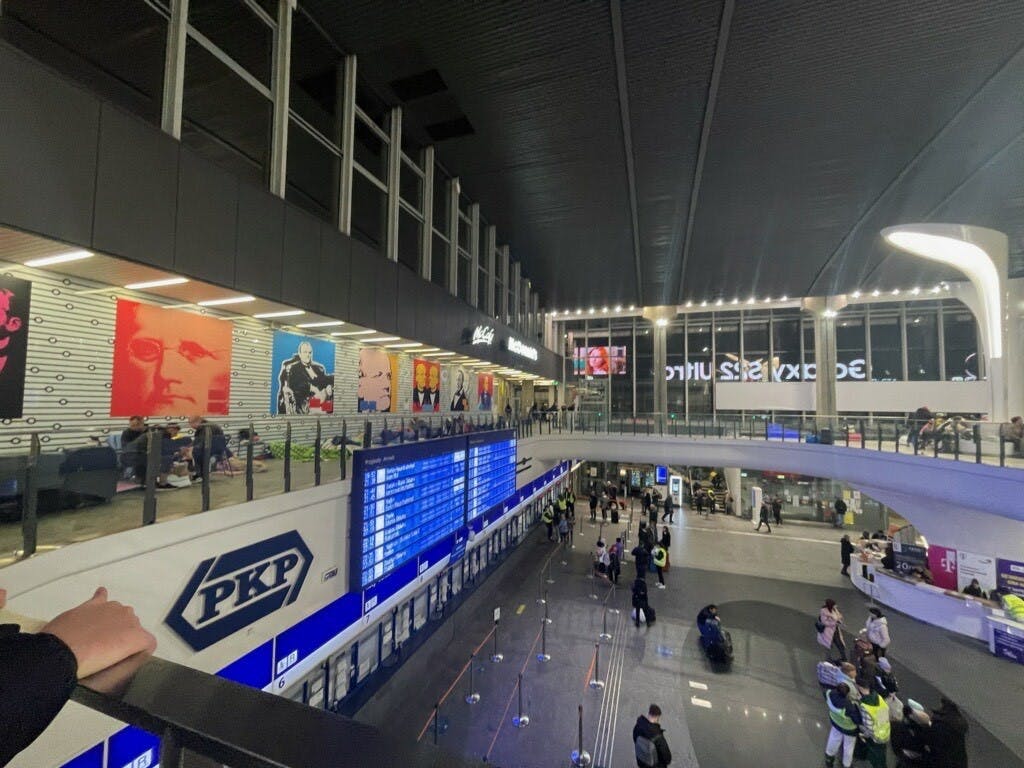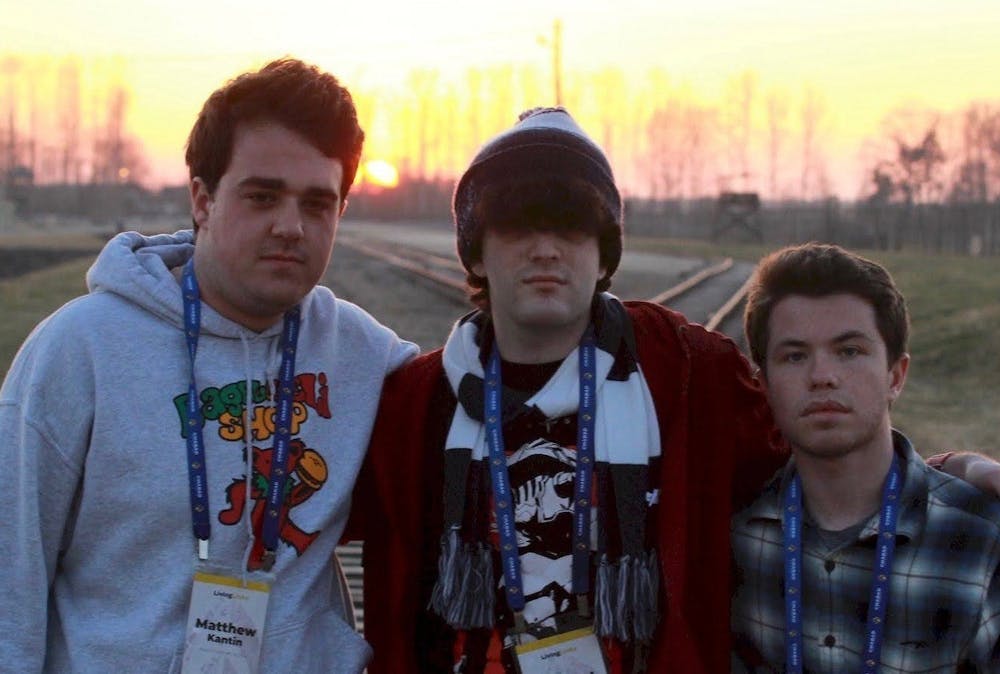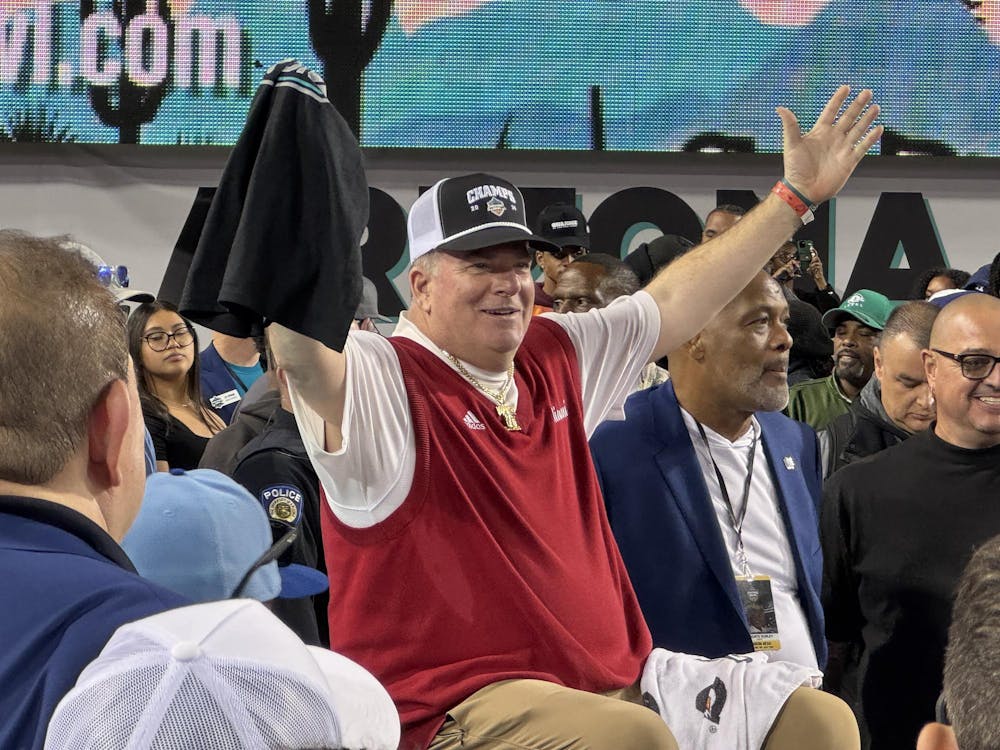Warsaw, Poland’s two-story Central Railway station is bustling with activity. Hundreds of people line the walls, and trains arrive by the hour delivering even more.
Yet no one is departing – they have nowhere to go. Among them, a group of Miami University students looking to make a difference.
When Matthew Kantin, a junior marketing major at Miami, enrolled for Chabad’s spring break Livinglinks trip to Poland back in January, he had no idea what was in store for him.
“I was looking for a new perspective, and to meet new people from around the country,” Kantin said. “I [wanted to] gain a better understanding of what the Jewish people had to go through at one point and how fortunate we are now.”
Livinglinks is an educational student trip to Poland that exposes students to Jewish European history through visits to concentration camps, synogogues and Holocaust memorials. When war broke out in Ukraine and refugees began fleeing to Poland, however, the group of 28 students decided to adjust its itinerary to help.
Josh Akum, a junior information systems and analytics major at Miami and fellow participant, said they helped out from the beginning of the trip.
“We went to Warsaw, Lublin and Krakow, and in each city we volunteered and helped with the refugees,” Akum said. “On the first night of the trip, we went to Warsaw Central station and prepared packages of food and supplies to get to them.”
The refugees in Poland were predominantly women, children and the elderly, as most adult men were required to remain in Ukraine to help with the war effort.
The group had raised almost $28,000 back home by posting on social media, contacting friends and family and collaborating with donors. At the stations, they made lists of items that families needed and went to stores to purchase clothing, food and other supplies to give them.
“It was very emotional giving [supplies] to these people that had nothing basically,” Akum said. “They were in the train station, some were on air mattresses, others were on the ground. There was a long line of people that were just desperate and needed help.”
Sanford Sharp, a junior psychology major, said the group also bought educational materials for the children whose schooling had been disrupted by the invasion. Although most of the refugees didn’t speak English, one member of the tour group knew Russian and was able to translate.
One of the women they spoke to had two young children nestled next to her — one son and one daughter. She recounted how they had managed to make it out of Ukraine, and her plans to travel to Germany to stay with family there.
Enjoy what you're reading?
Signup for our newsletter

Ukrainians fleeing from the ongoing war took refuge in Warsaw Central Station, where humanitarians offered food and supplies.
Several families spoke of the relatives they had been forced to part with in order to flee the country. One family spoke of their father, who had remained in Ukraine to stay with their dog.
“It was sad hearing the way they were talking and just how sad they looked,” Sharp said.
Although all three students were already against the war prior to the trip, they said being face-to-face with its consequences made them more passionate about it.
“It definitely helps you understand the conflict on a much larger scale when you actually meet the people that are being affected by it personally,” Sharp said. “It was also interesting walking around the cities and seeing how many anti-war protests, graffiti and posters there were … It was pretty much all either anti-Russia or anti-Putin.”
Akum said he was struck by the generosity displayed by those who had the least to give. One Ukrainian mother wanted to take the train to Berlin with her children to stay with family there, but couldn’t afford to. Several other refugees at the station pitched in to purchase tickets for them.
“I just remember hearing them speak,” Akum said, “and although it was a different language … you could just see and tell how much they’ve been through and how courageous and brave they are.”
Kantin said the trip has given him a lot of perspective on his own life and has made him more grateful for what he has.
“I’m lucky I get to do assignments,” Kantin said. “I’m lucky I have the opportunity to get a degree and make something of myself. I don’t think I would have said prior to Poland that I’m lucky to have assignments.”
Akum said he was glad to be able to witness both the past and the present through his study abroad experience.
“Although we intended on seeing memorial sites and the history of World War II, in reality we experienced what’s going to be in textbooks in the future for the Russian invasion of Ukraine,” Akum said. “It was a very heavy trip but meaningful nonetheless.”
Despite the difficult things they saw on the trip, the students said it made them want to enact positive change wherever they can.
“We visited a lot of cemeteries, and they’d give a story about who the person was and what they did,” Kantin said. “I was like, ‘Well, one day someone’s gonna be saying my story, and I want it to count.’”
Akum added that his Jewish identity and passion for service were both strengthened by his experience.
“There’s a Jewish value called ‘Tikkun olam’ and it basically means to repair the world and do what we can to make the world a better place,” Akum said. “As horrible of the places we went to were, it was extremely inspiring and motivating.”




